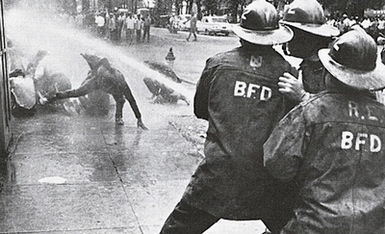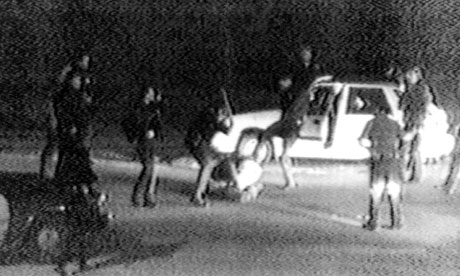aNewDomain.net — Pretty much every technology has its positive and negative merits. Those who create and distribute the technology can only control the use of their product so much, so the application of any technology can be used for good or bad purposes.
Take for example Google Earth. Recently a young Indian man used it to find his long lost family. A heartwarming use of revolutionary technology. But, at the same time, terrorists have used Google Earth to plan rocket attacks on civilians.
Image credit: Al Aqsa
Considering the broad range of productive applications of Google Earth, we have decided that it should not be outlawed, despite the fact that terrorists are known to use it.
We only ban specified uses of technologies, not technologies themselves.
Here is an example that is a bit less obvious. A year ago, Apple received a patent on technology that would let police or others turn off mobile cameras and wireless communication.
I am not a constitutional scholar, but don’t we have a right to record the acts of police in public places?
Perhaps you recognize the below-shown images. These photos show police using dogs and fire hoses during civil rights demonstrations in Birmingham, beating Rodney King, beating Kelly Thomas to death and using pepper spray at Occupy Wall Street.
Image screenshot credits: Larry Press via Google image search
Apple’s patent uses “covert police or government operations” as an example of an application, which is vague to say the least. It also mentions legitimate applications — for example, stopping cameras in a locker room or other places where one has a reasonable expectation of privacy.
What do you think? Is this a technology worth banning outright? Should police be allowed to use it?
Should any technology ever be banished?
PS — you can learn more about terrorists use of the Internet in this TED talk by Maajid Nawaz.
Based in Los Angeles, Larry Press is a founding senior editor covering tech here at aNewDomain.net. He’s also a professor of information systems at California State University at Dominguez Hills. Check his Google+ profile — he’s at +Larry Press — or email him at Larry@aNewDomain.net.



















[…] In Kurt Vonnegut Jr.’s short story “Harrison Bergeron,” Vonnegut satirically comments on the control of government on the people, incorporating the human obsession with technology and machinery. The government demands the use of machinery by law to enhance those below average and to diminish the abilities of those above average. One character with great physical strength must wear weights on his ankles and wrists in order to give him less of an advantage. One woman mentioned must wear a buzzer on head that sends a shock through her brain every few seconds, interrupting any innovative or intellectual thoughts she may be cultivating. Those with physical disabilities clearly use technology to make-up for what they lack, all at a calculated cost for equality. The enforced equality oppresses the individuality of the humans, brainwashing the society of cyborgs into a dull, uniform state void of emotion. Vonnegut’s purpose highlights and compliments the question that Mitchell implies: how far do we take technology and the cyborg? […]